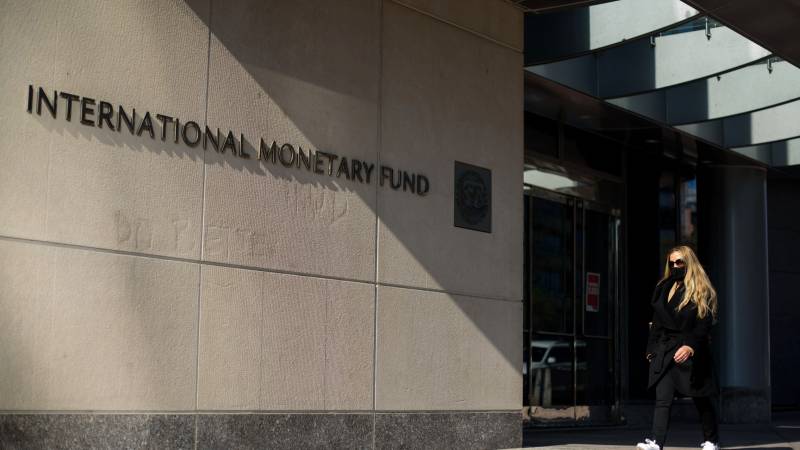IMF projects stronger 2021 growth amid pandemic rebound

Stay tuned with 24 News HD Android App

Accelerated vaccinations and a flood of government spending, especially in the United States, have boosted the outlook for the global economy, but more must be done to prevent permanent scars, the IMF said Tuesday.
The International Monetary Fund's World Economic Outlook now sees world growth of 6.0 percent this year after the contraction of 3.3 percent in 2020 amid the Covid-19 pandemic -- the worst peacetime downturn since the Great Depression a century before.
Rapid government responses prevented a much worse outcome, a collapse that could have been "at least three times as large," IMF chief economist Gita Gopinath said.
The United States, which deployed another $1.9 trillion last month, is expected to grow by 6.4 percent, among the fastest expansions in the world and 1.3 points higher than the January forecast. Meanwhile, China's economy, one of few that grew last year, will expand 8.4 percent in 2021, the IMF said.
The Euro Area too will see GDP expand 4.4 percent, slightly better than the prior forecast. Gopinath said that "even with high uncertainty about the path of the pandemic, a way out of this health and economic crisis is increasingly visible."
However, she stressed that the health crisis remains the critical factor in the economic recovery, and the slow rollout of vaccinations to many developing countries fuel risks not just of a worsening Covid-19 outbreak, but also a more troubling future for those nations and a widening gap with rich countries.
"The outlook presents daunting challenges related to divergences in the speed of recovery both across and within countries and the potential for persistent economic damage from the crisis," she said in the forward to the report.
As the pandemic caused business and trade shutdowns, the damage done to developing nation economies slashed per capita income and "reversed gains in poverty reduction," she said.
The IMF calculates that an additional 95 million people expected to have entered the ranks of the extreme poor in 2020, and there are 80 million more undernourished than before.
'Deeply iniquitous'
"Averting divergent outcomes will require, above all, resolving the health crisis everywhere," Gopinath said.
That requires cooperation to ensure widespread vaccinations across the world to address the "deeply iniquitous" vaccine access where rich countries are scooping up the bulk of the supply.
While the United States is expected to surpass its pre-pandemic GDP level this year, after China did so last year, many others will not hit that threshold until 2022 or well into 2023 for developing nations.
The IMF warned against withdrawing government support too soon, and urged policymakers to safeguard the recovery through policies to support firms, including ensuring adequate supply of credit, and workers with wage support and retraining.
That also calls for resources to help children who have fallen behind in their education during the pandemic, the fund said.
"Without additional efforts to give all people a fair shot, cross-country gaps in living standards could widen significantly, and decades-long trends of global poverty reduction could reverse," Gopinath said.
